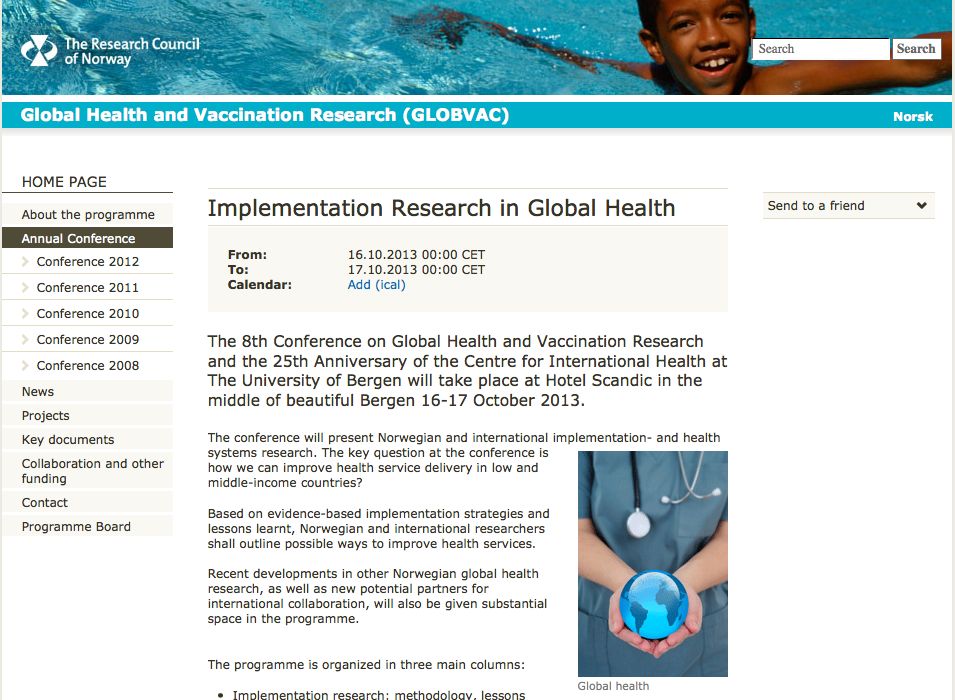The conference ‘Implementation Research In Global Health’ will take place in Bergen 16th and 17th of October 2013 and is the 8th annual GlobVac conference.
This week Safer Births was informed that our proposal for symposium was accepted and is in the program for the first day of the conference October 16th at 17.15-18.45.
The symposium is entitled: “Safer Births – Not just breakthroughs, the key is follow-through: The crucial role of alliances and implementation research in developing and implementing innovative products for improved newborn care and survival” .
The symposium will include three lectures by key personnel in the Safer Births project, and be chaired by the Safer Births Project Manager Dr. Hege Ersdal.
Helge Myklebust, Director of Strategic Research at Laerdal Medical AS will talk about the role of alliances and research in Laerdal Medical AS and its non-for-profit sister company Laerdal Global Health. The Laerdal companies are guided by the Utstein formula of survival: “Chances of survival = Medical Science x Educational Efficiency x Local Implementation” and Helge will tell more how this effects product development.
Dr. Jørgen E Linde, one pf the PhD fellows in the Safer Births project will talk about his research in rural Tanzania and the importance of being present and understanding the setting when conducting medical research. His research is on newborn resuscitation and the question he wishes to adress at the conference is: “How to convert medical research on newborn resuscitation to a useful tool for midwives in a low resource setting?”
Another one of the Safer Births PhD fellows Estomih Mduma will share his experience on implementation and human behavior from working on as a research manager on newborn and maternal research project in Haydom Lutheran Hospital since 2009.
His presentation is entitled: “Understanding the unmet needs and adjustment potential of the target group: lessons learned on implementation and human behavior research in rural Africa”
The aim with this symposium is to inspire and stimulate researchers and companies to engage in public private partnership in the field of implementation research, especially partnerships with research institutions and/or companies from low and middle-income countries. As well as to encourage policymakers to motivate and facilitate public private partnerships in the field of implementation research.
